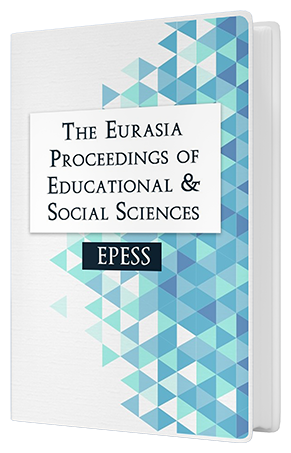The Biggest Winners and Losers of the Coronavirus Crisis Based on European Macroeconomic Data
DOI:
https://doi.org/10.55549/epess.1217294Keywords:
COVID-19 pandemic, Russian-Ukrainian conflict, crisis, competitivenessAbstract
The 21st century has brought significant changes for economic operators, not only from a technological point of view. Some of these changes have been positive, while others have created major challenges or problems that have had to be adapted to very quickly. The COVID-19 pandemic or the Russian-Ukrainian conflict have triggered a clear crisis process in many countries and businesses. However, it is assumed that crises do not affect everyone in the same way. This study aims to examine the impact of these two events on certain European countries. To this end, five macroeconomic indicators have been selected and their changes before and after the crises are examined. The study seeks to answer the question of how the crisis events have affected the basic macroeconomic indicators of the countries and whether it can be said that the crisis has left everyone worse off. Are some countries more resilient to the current adverse trends? We base our analysis not only on macroeconomic indicators, but also review the evolution of the IMD competitiveness indicator as a confirmation. The macroeconomic indicators and the competitiveness report will show how the macroeconomic and competitiveness situation of each country has changed following the outbreak of the COVID-19 pandemic, which was also significantly affected by the Russian-Ukrainian conflict. By reviewing this period, it will become clear to what extent the countries under study were affected by the events and it will be possible to identify which countries can be considered the biggest losers.Downloads
Published
Issue
Section
License
Copyright (c) 2022 The Eurasia Proceedings of Educational and Social Sciences

This work is licensed under a Creative Commons Attribution-NonCommercial-ShareAlike 4.0 International License.
The articles may be used for research, teaching, and private study purposes. Any substantial or systematic reproduction, redistribution, reselling, loan, sub-licensing, systematic supply, or distribution in any form to anyone is expressly forbidden. Authors alone are responsible for the contents of their articles. The journal owns the copyright of the articles. The publisher shall not be liable for any loss, actions, claims, proceedings, demand, or costs or damages whatsoever or howsoever caused arising directly or indirectly in connection with or arising out of the use of the research material. All authors are requested to disclose any actual or potential conflict of interest including any financial, personal or other relationships with other people or organizations regarding the submitted work.




